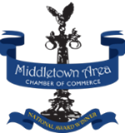Small businesses are the backbone of the American economy. Contracts and negotiations account for a big part of how these businesses operate. Understanding how to create and negotiate these legal documents is vital to their success.
Business Contracts and Why They Matter
A business contract is a legally binding agreement between two or more parties. Contracts define the terms of relationships between businesses, employees, contractors, and customers. Some essential agreements include:
-
Employment contracts
-
Vendor/supplier contracts
-
Leases
-
Nondisclosure agreements
These agreements create rights and obligations that all parties involved are expected to uphold.
Why Have a Contract?
A contract is simply an agreement between two or more parties. In business, contracts are used to establish the terms of relationships between companies and their customers, vendors, suppliers, and other partners. Having a contract in place helps ensure everyone understands their role and the expectations of the position. This process can help avoid misunderstandings and conflict down the road.
How to Create a Contract?
Now that you understand the basics of business contracts, it's time to learn how to create one. Below are some tips:
-
Keep it simple. The contract should be clear and concise, with no unnecessary comments.
-
Get it in writing. The contract should be in writing and signed by both parties to prevent misunderstandings and record the agreement.
-
Be specific. The contract should be clear about agreements to avoid any ambiguity or confusion.
-
Set a deadline. The contract should have a start and end date.
-
Include a termination clause. The contract should include a provision for how parties can end the agreement to protect your business if the other party can't meet its obligations.
Tips for Negotiating Contracts
Once you've created your contract, it's time to negotiate. Here are some tips:
-
Prioritize your objectives. Before you negotiate, take some time to think about what you want to achieve. What are your top priorities? Make sure you keep these in mind during the negotiation process.
-
Do your research. Before you negotiate, it's critical to do your research to understand the other party's interests and objectives.
-
Come prepared. Make sure you come to the negotiation prepared with a clear understanding of your interests and objectives and those of the other party.
Tools for Writing Contracts
When creating contracts, there are a few different tools you can use. One option is to use a contract template. This can be a useful starting point, but make sure you customize it to fit your specific needs.
If you use a free tool to extract PDF pages, it can also be helpful. This tool allows you to create, edit, and convert PDFs. It enables you to copy sections from older agreements to develop new contracts, reducing the time needed to create new documents.
Moving Forward With Negotiations
When negotiating contracts, it's essential to be prepared. For help with these legal matters, consider joining your local chamber of commerce. They can provide you with resources, support, and access to like-minded professionals.
This Hot Deal is promoted by MIDDLETOWN AREA CHAMBER OF COMMERCE.

